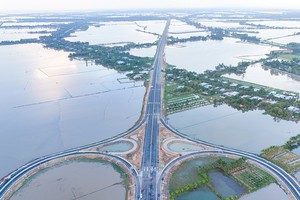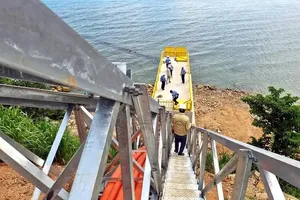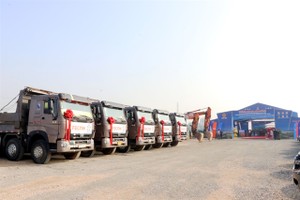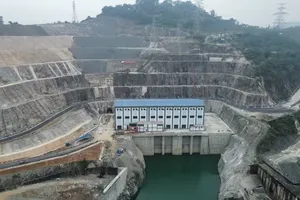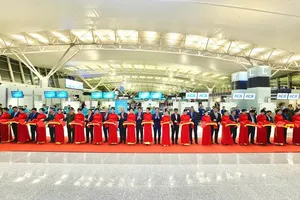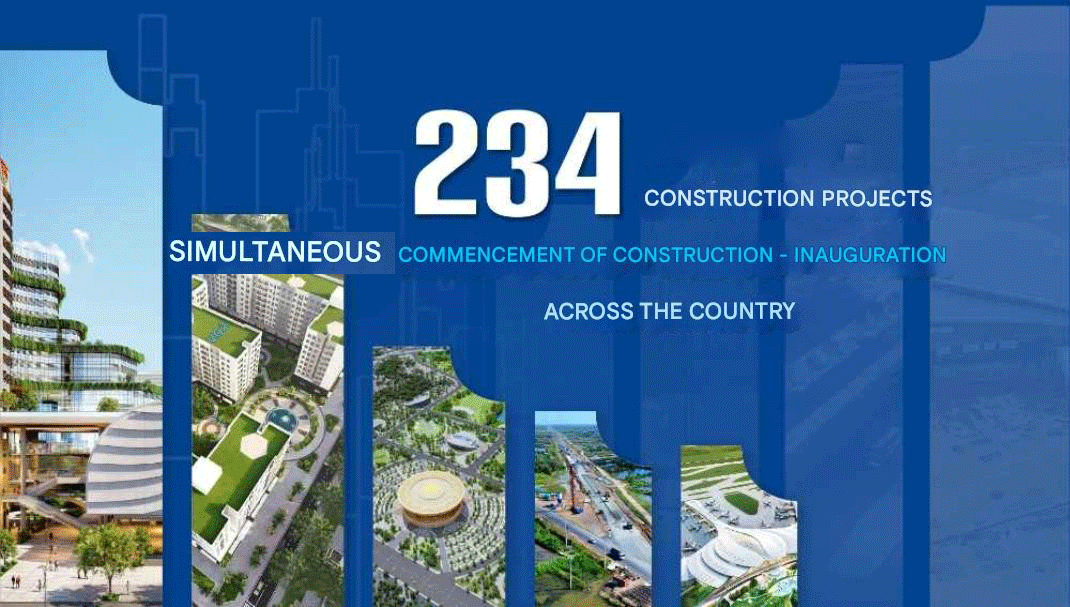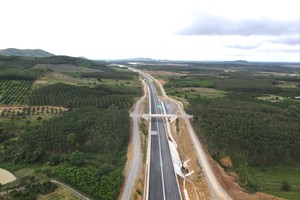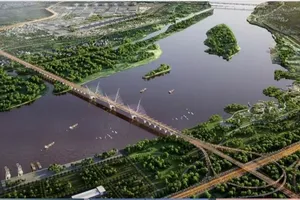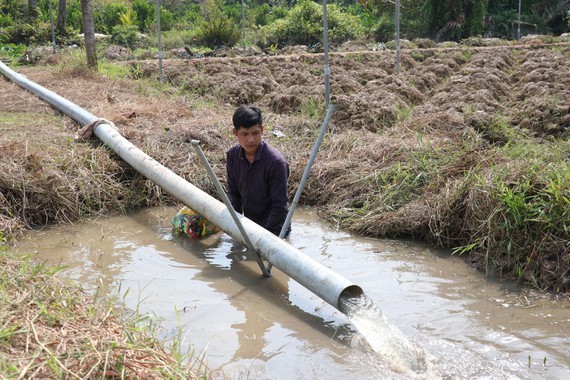
Since middle December, farmers in Ben Tre, Tra Vinh, Bac Lieu and Ca Mau provinces have been worrying about salt water which has penetrated far inland and spread to approach Can Tho city in the center of the Mekong Delta.
Mr. Ta Binh Nguyen, Director general of AQUAONE Hau Giang Water Company, has sent an urgent dispatch to some authorized agencies in the province after observation results at the water plant in Song Hau industrial park in Chau Thanh district neighboring Can Tho showed that salinity has been increasing at the water intake of the plant in the Hau river, from 0,08‰ early this month to 0,17‰ now, 0,1‰ higher than the same period last year.
Mr. Tran Chi Hung, director of the Department of Agriculture and Rural Development in the province, said that the department has conducted field trips to measure the salinity in Mai Dam town alongside Hau River and found it increasing. Salt water has penetrated into the province from both the eastern and western sea.
At present, 1‰ - 4‰ salinity moves 60-70 kilometers inland raising difficulties for farming production in Ben Tre province.
Salt penetration traditionally occurs after the Lunar New Year every year. This year meteorological agenices have warned that salt intrusion will occur sooner than usual but farmers have not prepared for that and been on the defensive, said Mr. Bay Nhien in Cho Lach district, Ben Tre. He is one of hundreds of households facing into difficulty in seeking fresh water for their ornamental plants.
Local authorities in Ben Tre province have mobilized residents to stockpile fresh water in ditches, ponds and reservoirs and share difficulty with housholds short of water for their flowers and ornamental plants to reduce damage due to salt intrusion. In addtion, people in Ben Tre have used big plastic bags to store water.
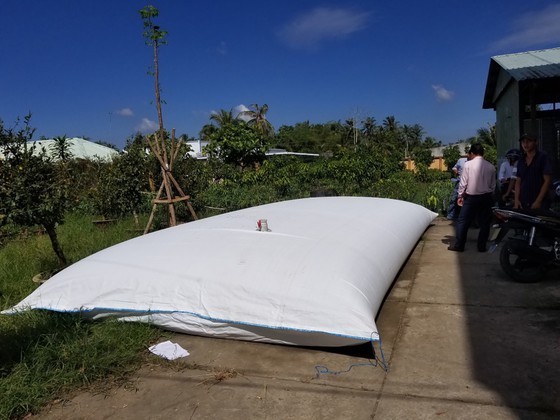 People in Ben Tre province use plastic bags to keep water (Photo: SGGP)
People in Ben Tre province use plastic bags to keep water (Photo: SGGP)
In the meantime, the agricultural industry has required irrigation workers to keep a close eye on the salinity to close sewer and dam systems in a timely manner to prevent salt water from further penetrating inland and keep reporting to the provincial leaders to cope with the issue, said Mr. Tran Chi Hung, director of the Department of Agriculture and Rural Development.
The Southern Institute of Water Resources Research said that curently the water flow from the upper reaches of the Mekong River has drastically fallen to a very low level. One of the main reason for this is the dropping water amount in Tonle Sap measuring only 14 billion cubic meters. It is 22 billion cubic meters lower than the same period in many years and 13 billion cubic meters lower than that in 2018. The current water amount in the lake is equivalent to that in 2015. This is one of the important factors which might cause historic drought and salt instrusion as it used to in 2016.
High temperatures will make evaporation faster and worsen salt intrusion amid the increasing demand of fresh water for farming production. The salinity of 4‰ might reach Tra On in Vinh Long province in the adjacent area with Can Tho.
The water flow from the upper reaches of the Mekong River is forecast to drop to a record low in the dry season 2019-2020 so salt penetration will seriously impact on production and life of residents. Hence localities should urgently implement measures including mobilizing residents to store fresh water right now.
In addition, they should rationalize crop production. In long term, there should be a strategy to supply fresh water for residents in coastal areas. Local authorities should take the initiative in updating information about drought and salt intrusion to have solutions to minimize risks and damage for farmers.



